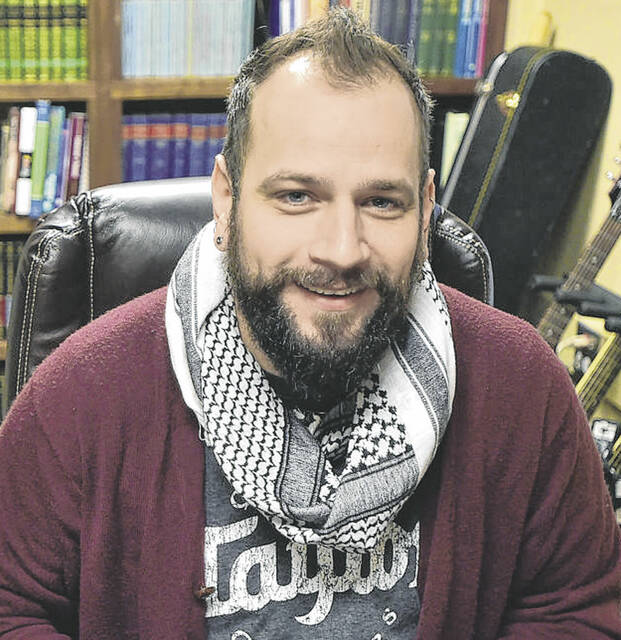
Myers
By The Rev. Jeremy Myers
There are few things that will develop faith and test patience like having a new teenage driver in your house.
Putting a student driver in the captain’s chair and taking the passenger seat is a demonstration of faith in them that often develops faith in God. The second your car pulls onto the road with your precious cherub driving, your prayer life immediately and drastically improves. Even the most wayward of prodigals suddenly becomes a prayer warrior. The Carrie Underwood classic becomes the cry of your heart: “Jesus Take the Wheel.”
It’s amazing how sitting in the passenger seat with a student driver in the captain’s chair suddenly makes one keenly aware of and a devoted adherent to traffic laws. This is where the test of patience comes into play.
As the expert driver in the car, you persistently call out inaccuracies in your young driver’s form and function as they head down the road. The greater the frequency of such calls for correction, the less gracious the interactions often become. It takes a great deal of patience to hold your tongue and pick moments that actually matter to make sure your student actually hears you and the conversation doesn’t become a distraction and a discouragement in the process.
When our daughter was learning to drive, it was quite the adventure, particularly for my wife. Having served as a youth pastor for 17 years, I had extensive experience putting teenagers in the driver’s seat of my car, having helped teach several students in my youth group how to drive.
For my wife, however, Mikayla was her first adventure into driver’s education. There were several tense moments in those days, some overreactions, others more than merited.
I’ll never forget one particular interaction between the two. We were sitting in a parking lot after completing our journey, by the grace of God, and my wife was playfully being melodramatic about the experience. Mikayla turned off the vehicle, looked at her mother and asked, “But did you die?” There was zero chance of containing my laughter.
For Mikayla, this was the filter through which we should evaluate her driving. So long as the car was in one piece and we were still drawing breath, she had been successful and there was space for grace.
While my daughter’s idea of how to evaluate one’s driving skills needed some recalibration, I do think it has some merit when it comes to how we interact with one another, particularly in times of disagreement, frustration and when we believe we have been wronged.
In Philippians 2:3-5, it reads, “Do nothing out of selfish ambition or vain conceit. Rather, in humility, value others above yourselves, not looking to your own interests but each of you to the interests of the others. In your relationships with one another, have the same mindset of Jesus…”
In the following verses, Paul explains how far Jesus went to demonstrate his compassionate grace for us as the model for how far we are to go in our dealings with others. It culminates in verse 8. Paul writes, “And being found in appearance as a man, he humbled himself by becoming obedient to death – even death on a cross!”
Extravagant love and unreasonable grace are hallmarks of the gospel as modeled for us in the life of Jesus. So long as we still draw breath, we have not given the full measure of grace to which God has called us.
“But did you die?” This is the question we need to ask one another as we navigate the messiness of relationships in the world in which we live.
To borrow from my earlier example, people will cross the center line, run a stop sign, jump a curb or perhaps go so far as to wreck the proverbial car. More clearly stated, people are going to fail, sometimes with astounding frequency. People will hurt and wrong us time and time again. We will give chance after chance after chance. Our faith and patience will be tested early and often.
And there will be times when we feel we have hit our limit and have run out of chances or grace to give. At those moments, we need to consider again the example of Jesus and the amazing grace he demonstrated and continues to avail to us through sacrificially giving his life and continuing to go above and beyond to bring restoration and reconciliation.
When we think we’ve given all we’ve got, we must ask the question, “But did you die?” If the answer is no, there’s still grace to be given.
The Rev. Jeremy Myers is the lead pastor of First Baptist Church in Seymour. Read his blog at jeremysmyers.com. Send comments to [email protected].
